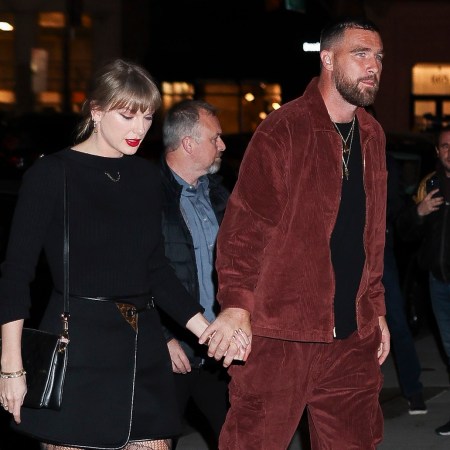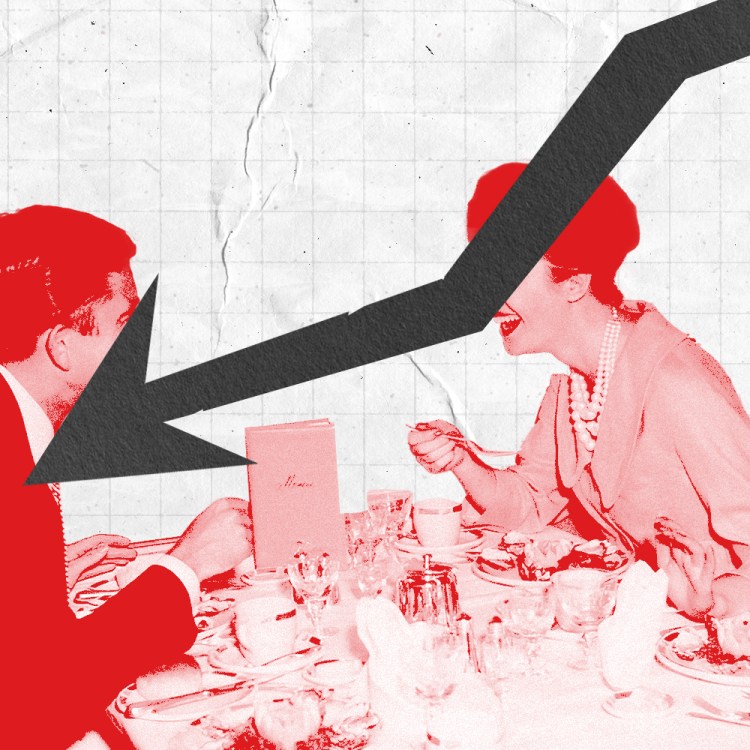Oh, the green-eyed monster. How it sure does come to emotionally mess us up in relationships. It can often feel like something out of our control. One minute we’re feeling secure and happy, the next we see our partner chatting with someone in a bar and feel deeply insecure and worried. It can be infuriating and embarrassing.
If we want to manage jealousy, we need to work with it. It is there for a reason. Like all emotions, there are good sides and bad sides. “An unhelpful script is that jealousy is a bad thing that we shouldn’t feel,” says Jordan Dixon, a clinical sex and relationships psychotherapist.
Jealousy is a symptom of something else. It serves to tell us that there is a pain-point that needs addressing within relationships. Yet, we don’t talk about it when it happens. We brush it under the rug and we let it fester. The kicker? Ignoring our feelings doesn’t make them go away. “As a society, we have learned to hide away from jealousy with a monogamy bandaid,” says Moushumi Ghose, MFT, a licensed sex therapist.
But we can’t hide from jealousy if we want to learn from it and build stronger relationships. So let’s examine the monster and figure out what it is, what purpose it actually serves, and how to manage it for better, happier relationships.
What is jealousy?
Let’s talk about what jealousy actually is from a biological standpoint. Jealousy is a deep-rooted response to fear of abandonment by our social group. Human beings are inherently social creatures. We rely on connection to survive. Therefore, jealousy is an emotion that tells us: Hey, boo! There is a massive threat happening and you need to fire up real quick or you’re gonna be left behind!
Joli Hamilton, Ph.D, CSE, a qualitative researcher whose work focuses on jealousy, says that it is a complex emotion that is made of a combination of other emotions.
- fear
- anger
- sadness
- anxiety
- anticipatory grief
- sexual arousal
- guilt
- shame
- envy
Now, how does this serve us with romantic partners? Jealousy plays a very important role in our sexual and romantic relationships. It arises when there is a real or perceived threat to your relationship. “Jealousy occurs in social triangles made of: The Jealous One, The Valued Other, and the Perceived Interrupter (who can be real or imagined),” Hamilton says.
According to Dixon, jealousy can serve as a form of “mate-protection.” It is an adaptive response to guard what is yours if you perceive that someone or something will take it from you. “Jealousy is considered a necessary emotion because it can preserve social bonds and motivate some people to engage in behaviors that maintain essential relationships,” she says.
In nature, it has ensured survival. “The jealousy hypothesis claims that the presence of jealous traits may have influenced an individual’s reproductive success, leading to the continuation of their bloodline through natural selection,” explains Dr. Nazanin Moali, a psychologist, sex therapist, and the host of the Sexology podcast. “As such, those who exhibited stronger jealous traits were more likely to pass on their genes.”
Men (Not Just Women) Want Emotional Intimacy in Relationships
An obvious but often ignored truth is that men also have emotional needs in relationships, and they can often go unmetThe benefits of jealousy
Folx, jealousy isn’t all bad. Emotions are there to aid in survival. Hamilton says that jealousy provides information that we can use. It is a part of our internal navigation system.
Jealousy is inherently internal. It is a reflection of how we feel about ourselves. It is an “ego-driven emotion that can help us tap into the old hurts and pains that we have carried with us from when we were very young. It can help us see where we have stopped loving ourselves, and where we have let others dictate our well being,” Ghose tells us.
When it is triggered, there is usually something behind it, an old wound that hasn’t been addressed. Because jealousy is fear-based, we can interrogate its purpose and ask: Where is this fear coming from? Where am I feeling insecure? What is this emotion trying to signal for me?
Jealousy may be uncomfortable, but it can be used as a tool to shed light on the areas in our relationship that need a little extra attention. “We can use jealousy to lean into our hurts and pain, have more talks and build connections with our partners,” Ghose says.
Of course, this enlightenment and relationship-building aspect of jealousy can only be useful if we’re willing to accept the challenge of dealing with difficult feelings. “If jealousy is the beginning of a conversation about expectations, boundaries, and explicit agreements then it could be a relational asset,” Hamilton adds.
The downsides of jealousy in romantic partnerships
Where things get messy is when jealousy doesn’t lead to self-questioning, but reactivity. “When individuals spiral into their emotions and automatically blame their partner, they fail to take ownership of their feelings and explore the root causes,” Moali says. When we get swept up like this, we hinder our personal growth and that of our relationship.
In some cases, jealousy may cause someone to attempt to control their partner’s behaviors in order to limit perceived threats. In these instances, jealousy can breed resentment and damage the relationship.
In extreme cases, jealousy can even cause violence within a domestic partnership.
Jealousy is an intense emotion and it can lead to the breakdown of relationships when it isn’t contained and decoded. So, we best be decoding it, right?
How to manage jealousy so you and your partner(s) can have stronger bonds and communication
- Look at the underlying relational issues.
When we use jealousy to get curious about ourselves, we can begin to see what it is trying to tell us. “If the jealousy is triggered by a specific event or situation within your relationship, it is essential to navigate through the emotion together” with a partner, Moali says.
Remember, it’s a symptom, not a cause.
- Use it as an opportunity to discuss relationship agreements.
Did a boundary get crossed and are we still on the same page? Is our trust shaken in a way which needs some rebuilding? If we answer ‘yes,’ we need to “try to bring our partner(s) in so they can understand us and we can re-shape the relationship with what we may need,” Dixon says.
It can help you really get clear on boundaries. “You can use the opportunity to get clear on what constitutes cheating or betrayal, what boundaries you have, and what the consequences are for those boundaries being violated,” Hamilton says.
This is an opportunity to repair and figure out what you need going forward.
- Figure out a game-plan to increase relational safety.
After you’ve discussed boundaries, go a step further by figuring out what you’ll do in the future, should jealousy come up. Moali tells us that we need to discuss our feelings and make a request for ways to experience more safety and security. “Focus on finding solutions that feel fair to both parties,” she says. “This could involve implementing new boundaries, increasing communication, or spending more quality time together to strengthen the bond.”
Jealousy is a fickle emotion. It is complex and often hard to figure out. With a little introspection, empathy, and a lot of communication, it can be beneficial in relationships. We just have to be willing to investigate it.
The Charge will help you move better, think clearer and stay in the game longer. Subscribe to our wellness newsletter today.


























